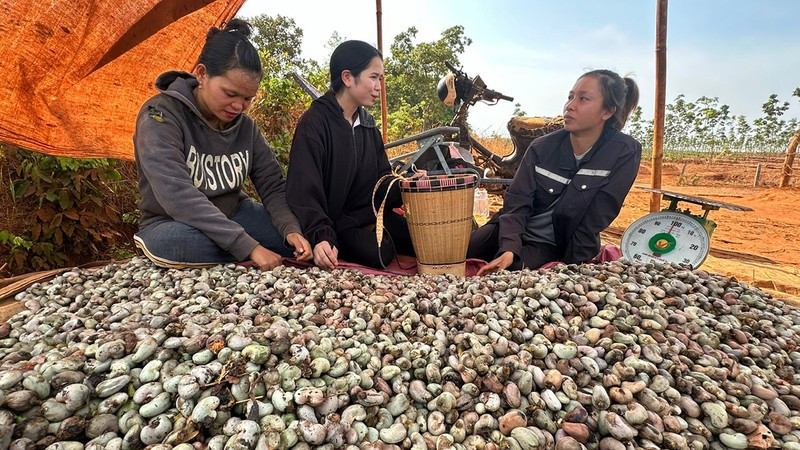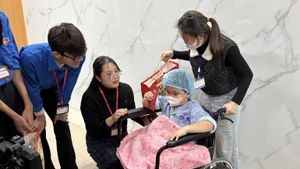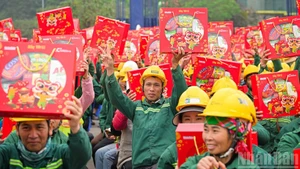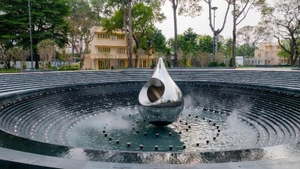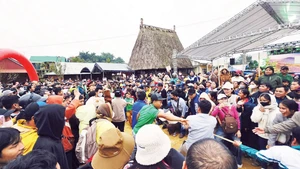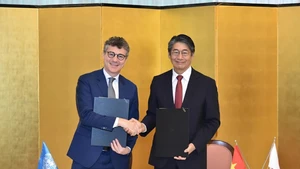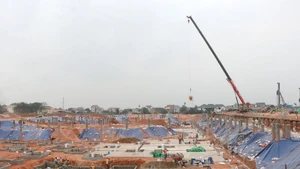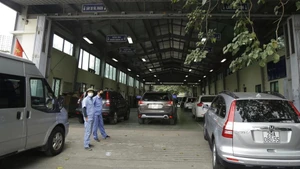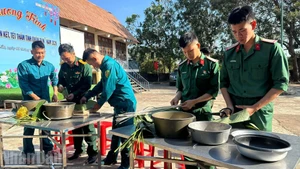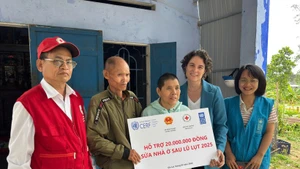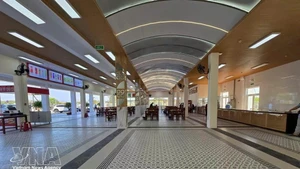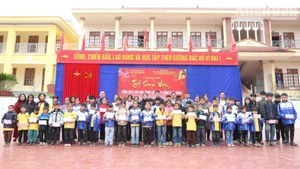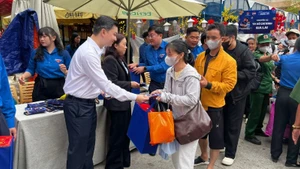Ngoc Hoi District of Kon Tum Province, which borders Laos and Cambodia, and Duc Co District of the Gia Lai Province, which borders Cambodia, are two remote border districts of the northern provinces of the Central Highlands region.
Over the past years, the local authorities have implemented programmes and policies targeting ethnic communities in the mountainous and border areas. Many projects and programmes have been effectively brought to life, promoting the local socio-economic situation, while enhancing the material and spiritual life of the locales.
Participating in the sub-project of breeding cows, which is implemented within the framework of the National Target Programme for Socio-Economic Development in the Ethnic Minorities-Inhabited and Mountainous Areas, Y Xe – a woman in Sa Loong Commune, Ngoc Hoi District, received a breeding cow in 2023. Under the sub-project, she also received training techniques for building barns, disease prevention and treatment, and dairy farming knowledge.
The cow is in good condition and ready to generate income for the family, helping them reduce poverty.
Lang Bua Village, Ia Pnon Commune, Duc Co District is home to more than 500 households, with 280 of them being members of the local farmers’ association.
In this border area, each household owns between two to four hectares of cashew and coffee crops.
The district’s authorities have adopted a programme to develop the production and consumption of coffee and cashew products.
To date, 15 households in Lang Bua Village have been qualified to join the programme, which provides them with fertilisers, pesticides, and coffee, as well as training on farming techniques.
Siu H’Pép, Head of the Lang Bua Village Farmers’ Association, grows more than 1 hectare of cashews.
By joining this programme, Siu H’Pép received training on the proper use of fertilisers and pesticides, and techniques for pruning and shaping cashew trees. She shared, that by applying what she has learnt from the programme, her cashew trees produce more effective crops.
Meanwhile, Ro Cham Phuong's family in Ia Nan Commune, Duc Co District has over four hectares of cashew, rubber and coffee fields. Thanks to the programme, her family has received support for fertilisers and pesticides since 2023, thus earning a better income.
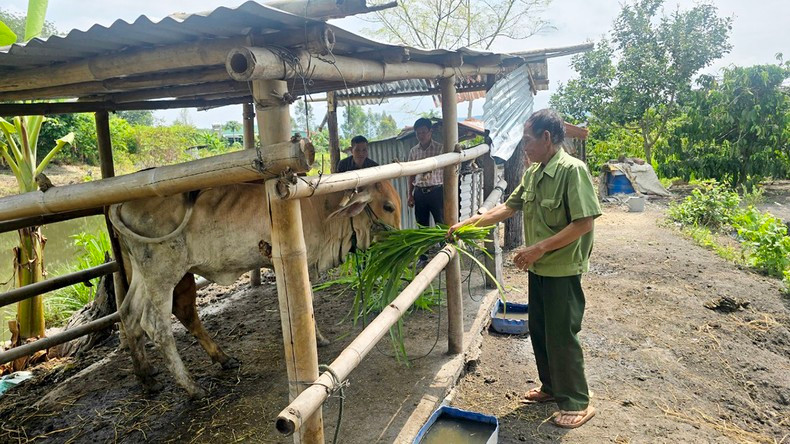 |
| War veteran Sa Van Doan from Cao Son Village, Sa Loong Commune, Ngoc Hoi District, Kon Tum Province feeding cows. |
Kon Tum Province has four districts bordering Laos and Cambodia, while Gia Lai Province has 90 km of shared border with Cambodia, stretching across seven communes in three districts of Duc Co, Chu Prong and Ia Grai.
Border areas such as Ngoc Hoi District in Kon Tum Province, and Duc Co District in Gia Lai Province also have international border gates with neighbouring countries Laos and Cambodia. Thanks to the care of the State and local authorities, the transport system has been improved, and major national target programmes have been effectively implemented, bringing a makeover to the localities.
Several economic models have been deployed in Ngoc Hoi District, Kon Tum Province, such as cow breeding and farming projects in the communes of Sa Loong, Dak Xu, Dak Duc, and Dak Nong. These models have contributed to developing the local household economy and reducing poverty in these communes.
Bui Van Hien, Head of Hao Ly Village, Sa Loong Commune, Ngoc Hoi District, reported that the village is home to 143 households, with a population of 583 people, including six poor households. The local poor households received breeding cows and husbandry training.
Duc Co District has a borderline of 35 km, spanning the area of three communes: Ia Dom, Ia Nan and Ia Pnon. In addition to implementing three national target programmes on building new rural areas, reducing poverty, and boosting socio-economic development in ethnic minority-inhabited areas, the district has also actively mobilised social resources to support people’s household economy.
The local authorities also pay great attention to developing the agricultural sector and boosting sustainable production in the community.
In 2023, the agricultural sector of Duc Co District launched a project to develop a specialised area for durian and cashew cultivation.
Ro Mah An, Head of the Farmers' Association of Lang Ba Village, Ia Pnon Commune, said that the village has established a group to share the experience of cashew farming, which has attracted the participation of 25 members.
The group members also share their knowledge, farming techniques, fertiliser use, and treatment types for the improvement of cashew yield.
The policies and programmes promulgated by the State and the local authorities in remote and border areas have shown positive outcomes in enhancing socio-economic development, reducing the rate of poor households, and stabilising people's livelihoods.
